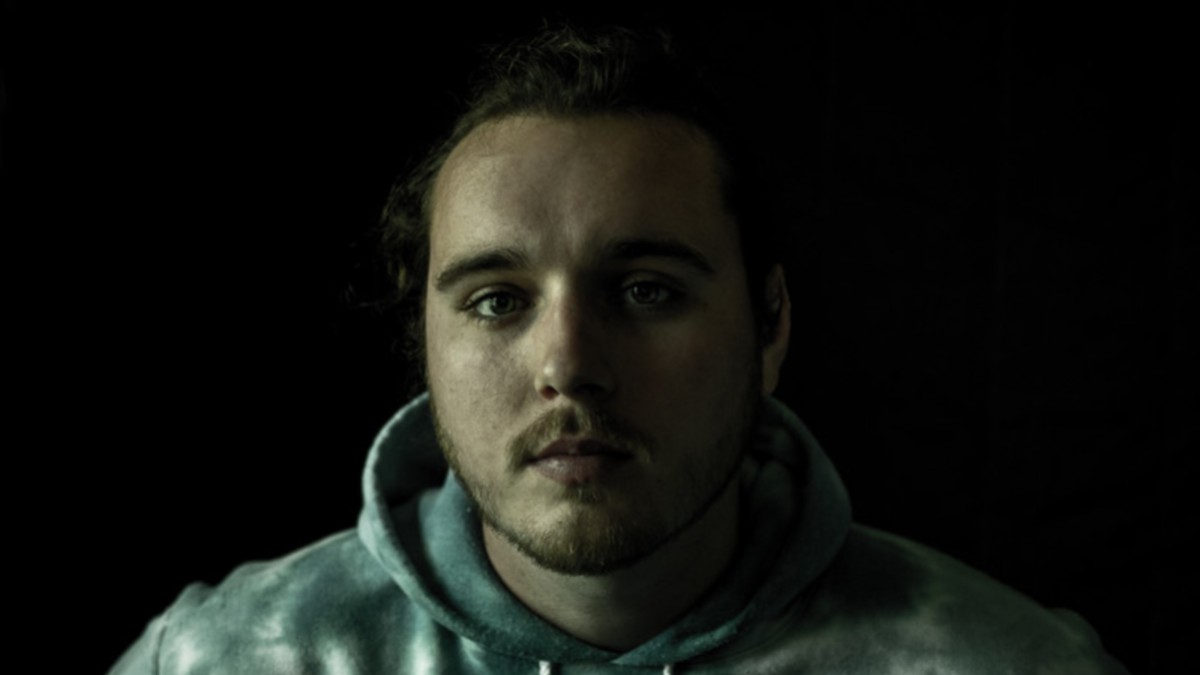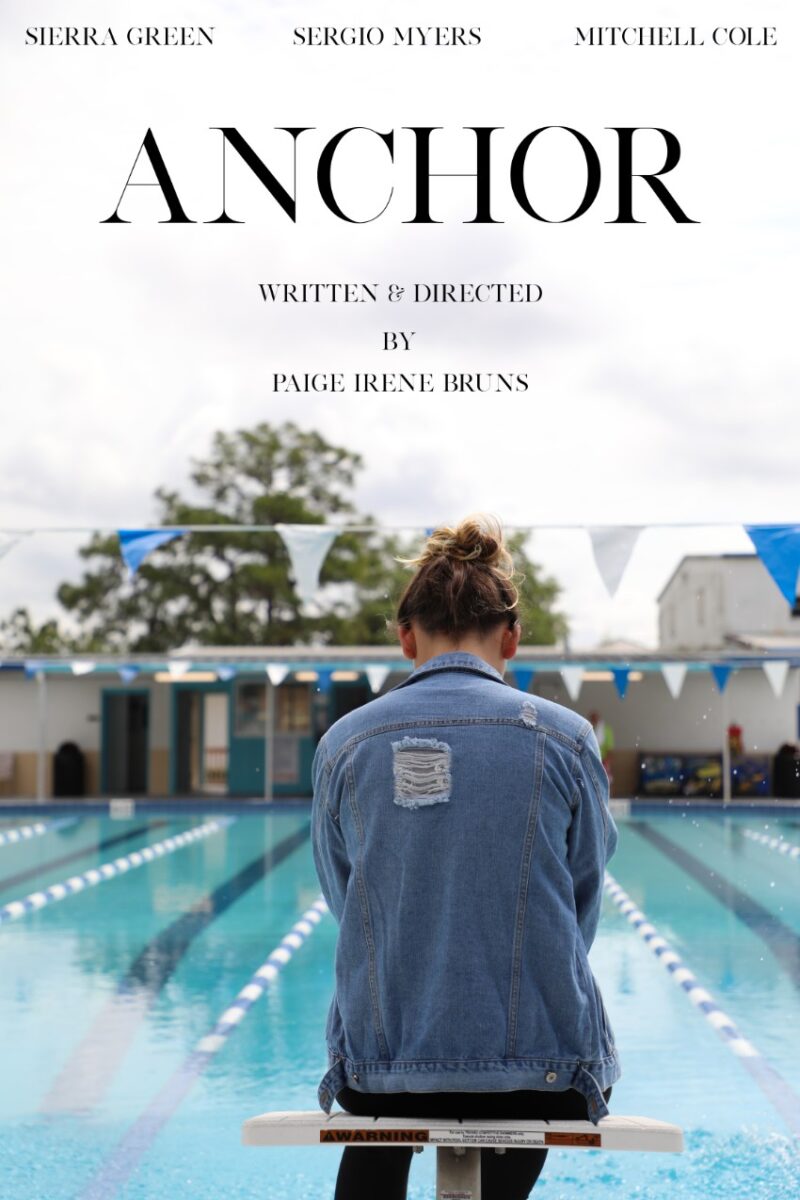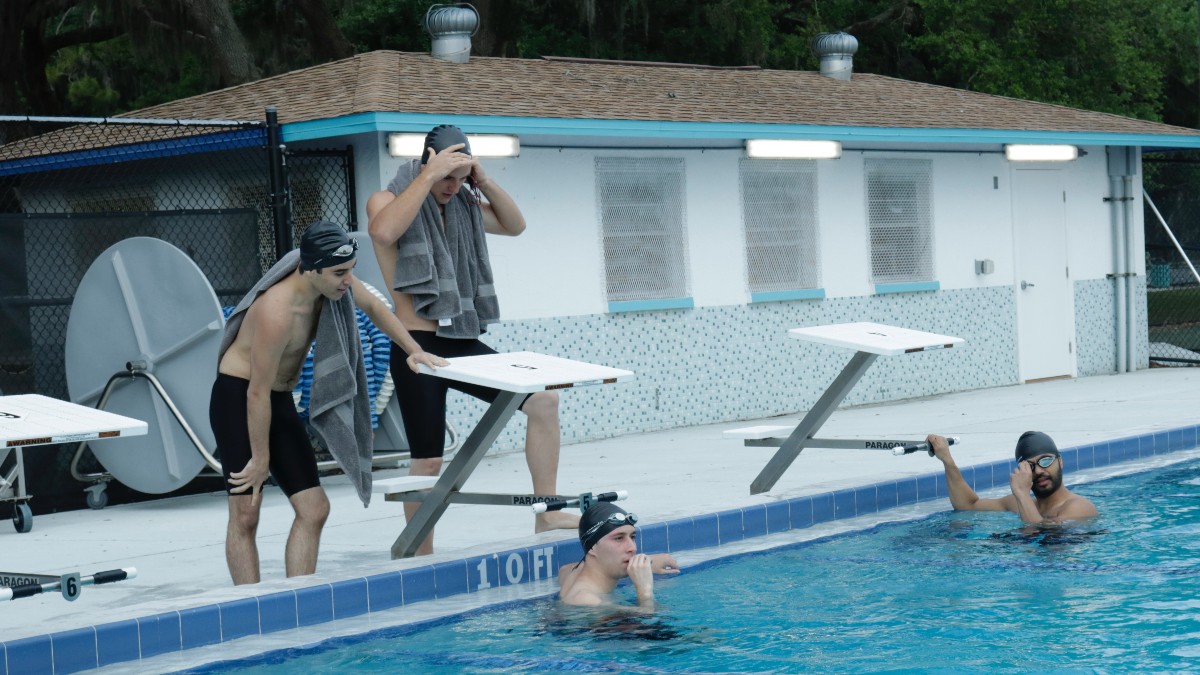
Mitchell Cole first began experimenting with film when he was in middle-school as he and his friends would shoot their own short films on a weekend. Mitchell also did a few projects for his TV production classes in school.
indieactivity: What acting technique do you use?
Cole says. “After high school, I joined the workforce as an HVAC technician. I am from the Florida Panhandle, which is a very rural, blue-collar area, so the idea that I could make a career out of making films didn’t even seem possible. After six long years in the HVAC industry, my friend, Bradly, gave me this life-altering speech about how anything is possible if you believe in yourself”.
“Something about that speech hit the right nerve and totally changed everything for me. I got my ducks in a row for the next six months and quit my job to pursue a career in the film industry. I started as an actor in student films and then eventually moved toward writing my own screenplays that I would also direct and act in, says Mitchell Cole.
indieactivity: What acting technique do you use?
Mitchell Cole (MC): This is going to sound very unprofessional, but I have never had any kind of training. I have researched different actors and how they approach each individual role. Through trial and error, I have figured out what works for me, personally. I try to spend time before shooting as the character. For example, when I wake up, I will do morning routines that I feel the character would do and take up similar hobbies.
This way, when it comes time to shoot, I already know exactly what it’s like to exist as the character. So far as each individual scene, I will find the key emotions that the character is feeling in the scene, and then draw that emotion from an actual life experience that I have had. Having said all of that, I would love to take some actual acting classes and refine my skills. (there aren’t very many acting teachers in the Florida Panhandle, as you might have guessed)
Watch the trailer for Anchor directed by Paige Irene Bruns
How’d you get connected to this project? Audition? If you did, would you still have gotten the part?
Mitchell Cole (MC): I found this project very early in my career. It was listed on Backstage. I applied for the role and was surprised when I heard back. I live almost six hours from where it was filmed, so I didn’t think that Paige, the director, would roll the dice on casting me. She and Parker, the producer, set up an online audition for me via Skype. I had a callback that was also done virtually. It’s kind of funny because I was originally supposed to audition for another role (Cam) in the film.
Hours before the audition, Parker sent me the sides for another character (Alec), so I kind of figured they had someone else in mind for the role of Cam. This assumption led me to totally forget about the Cam role and Fully commit to nailing the Alec audition. It all worked out, thankfully!
Let’s take this project you did; how did you prepare for such a role: the cast, the physicality the terrain, the climate, the weather, and the demands of the project?
Mitchell Cole (MC): In the film, Alec is a swimmer competing on a national level. I did NOT have a swimmer’s physique when I auditioned for the role. Once I got the role, I spent every day at the gym and ate almost nothing but protein. I lost around twenty pounds before shooting began and for the first time in my life, I had actual abs. I still didn’t look anything like a national competing swimmer, but I was much closer than before!
For the mental part of the role, I spent some time talking to shady guys from bars and clubs. These guys all go to these places to shoot their shots with women and some of them push it to the limit. I felt like Alec would have a similar mindset as these guys so it helped me get some clarity on what Alec would think during the film and why he would think that way.
As one of the cast on the project, how did this ‘choice’ work for you?
Mitchell Cole (MC): I think the choice to get to know the guys in bars and clubs was the perfect choice because I feel like these guys all had lives/upbringings very similar to Alec. They all behaved exactly the way that I imagine that Alec would.

How do you create the character from a script into a person?
Mitchell Cole (MC): Paige sent me a really neat character breakdown before Alec. It explained where Alec came from and what his childhood was like. I kind of got the feeling that he was a very entitled person with a very strong talent in swimming. This was a recipe for disaster, as he gets a god-like mentality. A lot of the screen time that I had was more physical acting and no dialogue so that was a challenge in itself.
What part of the story challenged you when you read it? What drove you to get on the project?
MC: I was very nervous about the assault scene. I knew that filming it would be very uncomfortable and that Sierra, the actress in the scene with me, and I would have to trust each other and also trust Paige’s vision. I felt that the script was very strong and at its core was a story about Cam’s dilemma. It was a very interesting concept, especially when you imagine yourself in Cam’s shoes. The story was strong enough that I felt the reward outweighed the discomfort of shooting that particular scene.
Explain one creative choice you took on the set of this production?
MC: I remember when shooting the scene between Cam and Alec after the assault, there was a line that read “Rape?! We were just having fun!”. The line to me read as though Alec was actually trying to convince Cam that nothing bad happened. In my research for the role, I learned that a true master manipulator can actually convince themselves that a lie is true in order to convince others. So when Alec is accused of rape, in my mind, he has already convinced himself that he didn’t commit rape. So when we got to that line, I felt Alec would laugh at how absurd Cam’s accusations were to him. I remember everyone on set commented that their stomachs turned when I laughed on that line. Looking back, it is pretty terrifying.
You’re not new to indie films. What do you enjoy about the work that keeps you working?
MC: I love that an indie film can tell a true story without limitations. Once you get to a bigger production, there are more people at the top who control the end product. There are some exceptions to this rule, but almost every favorite film of mine in the past 15 years has been an indie film. In my opinion, a good story is a key to a good film. You can have all the flashy visuals and a clear theme, but without an engaging story, you have nothing. Indie films don’t have the extravagant things that you get with a big production, so they seem to rely more on story and characters.

Give an example of a direction you received from the director during the production?
MC: Paige was very clear on what was important about each scene. She laid out her goals and expectations very well and there was never a moment that I felt lost in the scene. I know in the opening scene there is an interaction between Alec and Cam where you can see their dynamic as partners. She really stressed just how big that particular moment is for each character. It really sets the story up nicely, as that moment is contrasted very heavily the next time that you see the characters together.
How did you collaborate with your cast members from scene to scene?
MC: With the pool scenes, all of the cast hung out together. We were laughing and having the time of our life. It was very helpful when we were shooting the celebration scene at the beginning of the film. In the later scenes, there wasn’t very much conversation between the cast. I think for the scenes and emotions to be authentic, we were afraid of getting too friendly with each other before takes.
As the main cast in the film, describe the feeling of responsibility. Was it tough? Or did it fire you up? What scenes were difficult to shoot?
MC: I knew that for this film, Alec had to be an absolute monster for the story to work. The audience had to sympathize with Haleigh and Cam while also rooting against Alec. Without that, the audience wouldn’t be able to relate to Cam and his dilemma. It definitely put the pressure on me to be as sinister as possible. I perform better under pressure, so I am pumped up, raising the character’s internal intensity. I was scared just before we filmed the assault scene. Once we were a few takes in, the nerves eased a bit.
What did you take away from the film production?
MC: In this production, I learned a lot about filmmaking as a whole. Watching the incredibly talented crew members work was so inspiring. it was very interesting to see each crew member do their job. By watching each person work, I feel like I gained so much knowledge that has helped me down the road.
Tell us what you think of the interview with Mitchell Cole. What do you think of it? What ideas did you get? Do you have any suggestions? Or did it help you? Let’s have your comments below and/or on Facebook or Instagram! Or join me on Twitter.
Richard Green Documentary, ‘I Know Catherine, The Log Lady’: Premiere in NYC, LA May 9th
Lynchian Doc I Know Catherine, The Log Lady Makes Hollywood Premiere 4/17, Rollout to Follow
In Camera by Naqqash Khlalid Launch on VOD April 29
Naqqash Khlalid’s Directs Nabhan Rizwan. In Camera stars an EE BAFTA Rising Star Award Nominee.
2025 Philip K. Dick Sci-Fi Film Festival Award Winners Announced
Vanessa Ly’s Memories of the Future Awarded Best PKD Feature
Dreaming of You by Jack McCafferty Debuts VOD & DVD for April Release
Freestyle Acquires “Dreaming of You” for April 15th Release
Hello Stranger by Paul Raschid set for London Games Festival & BIFFF
The film Is set for an April 10th Premiere at The Genesis Cinema in London (LGF) and BIFFF
Daydreamers Official Trailer by Timothy Linh Bui: Released by Dark Star Pictures
Daydreamers Vietnamese Vampire Thriller – May 2nd release









